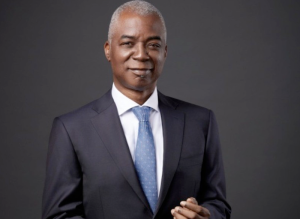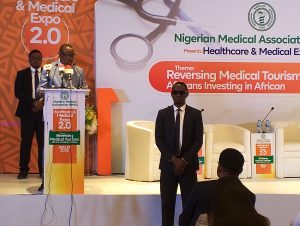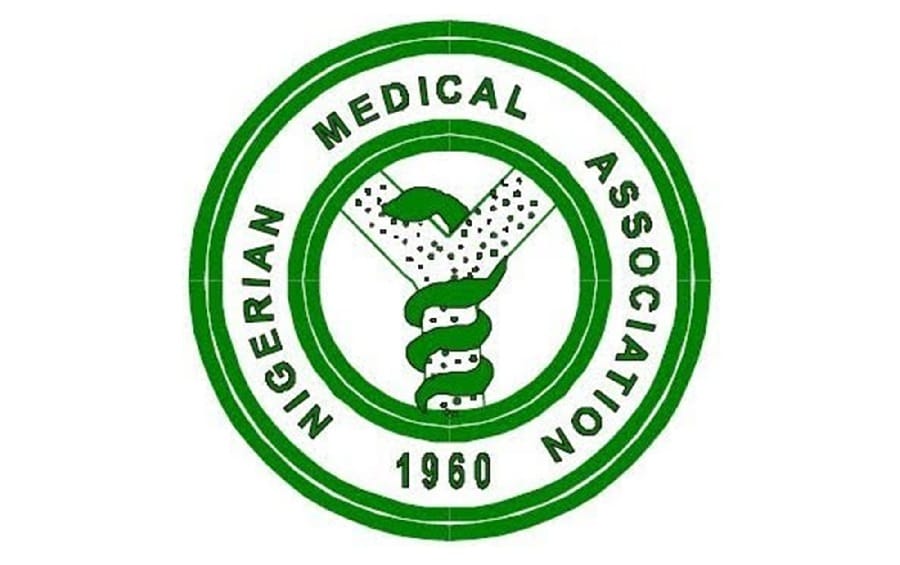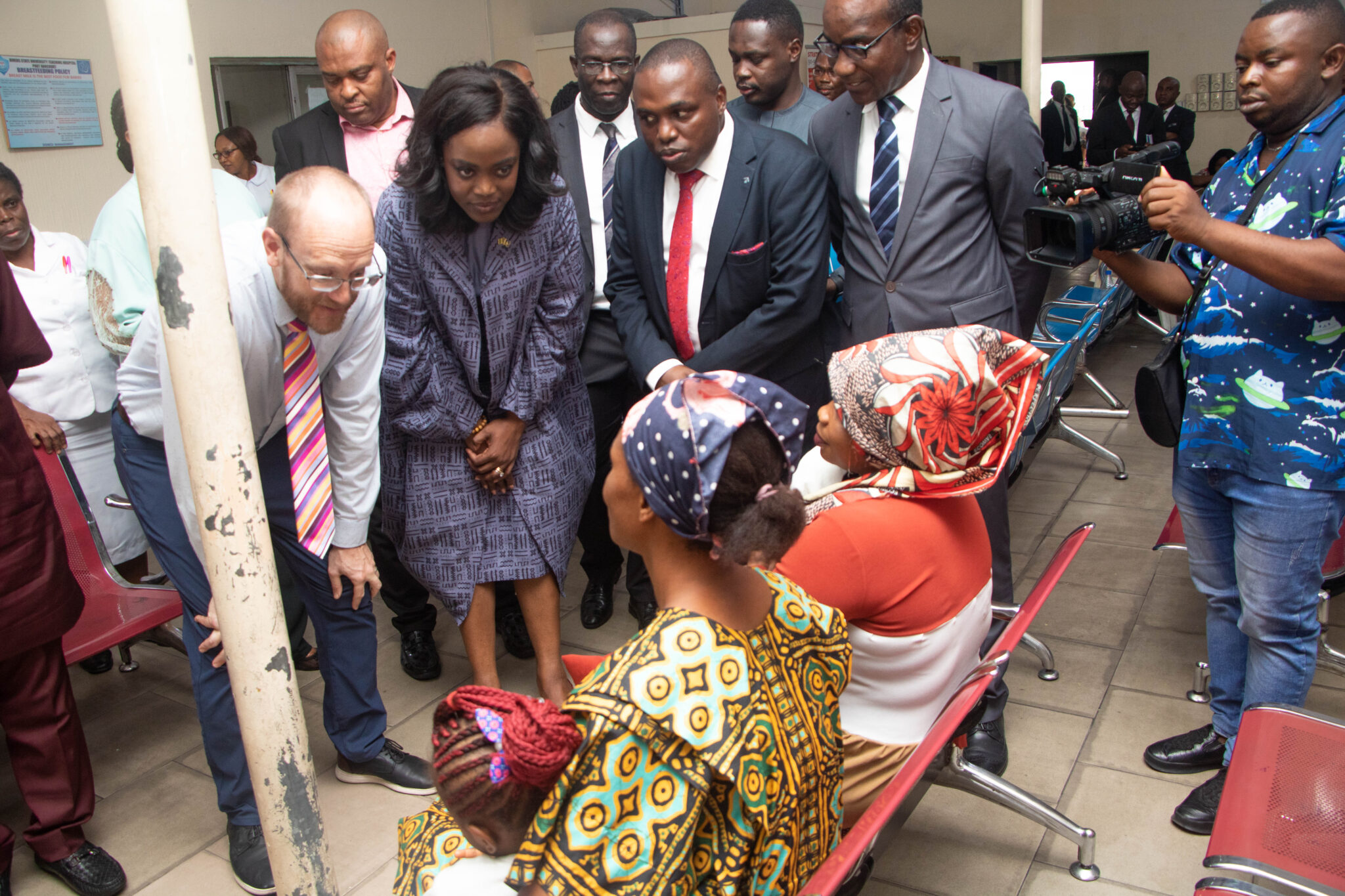By Ojoma Akor
The Nigeria Medical Association (NMA) has called on the government and other stakeholders to increase efforts to reverse medical tourism in Nigeria and across Africa.
President of the association, Prof Bala Audu, made the call yesterday during the association’s healthcare and medical expo in Abuja. The theme of this year’s expo was ‘Reversing medical tourism. Africans investing in Africa.’
He said that every year Africa loses about 10 billion dollars to medical tourism, adding that the outflow of capital not only weakens the economy but also undermines confidence in the healthcare systems.
He said, “Yet within this challenge lies a great opportunity, the opportunity to harness the skill, knowledge, and resilience of African professionals to create world-class medical services here at home.”
The NMA president said the theme of this year’s conference was chosen because people leave the country for medical care in developed countries such as the United States and the United Kingdom, even though some of those services are readily available at their own doorstep.
He said, ” So we thought it was necessary to create the awareness that many great things are going on in this country. In addition, we realized that people in other parts of the world can come to Nigeria to get these services.

“So we are not only going to reduce the number of Nigerians going to other countries to get these services, but we are going to attract nationals of other countries to come to Nigeria to access these services.”
He added that to achieve that kind of high-end, globally dominant service, Africa needs to invest in itself by creating an enabling environment for health financing that makes the healthcare industry in Nigeria as competitive as those in other parts of the world.

Chairman of the conference, Dr. Tunji Olowolafe, in his keynote address, said each year, Nigeria loses an estimated $7 billion to medical
tourism.
He said, ” That is not just capital flight — it represents a drain of confidence, capacity, and hope. We see some of our best-trained doctors leaving the country for better opportunities abroad. We see patients who could be treated here travelling thousands of miles, often at significant personal cost, for procedures that could be done — and done well — in Lagos, Abuja, or Ado-Ekiti.”
While it is true that Nigeria loses an estimated $7 billion annually to outbound medical tourism — a staggering figure that underscores the urgency of our theme, it is equally valid that bold economic reforms are reshaping the healthcare sector, from the enforcement of the National Health Insurance Authority, (NHIA) Act 2022 for mandatory coverage, to Executive Orders removing tariffs on medical machinery, and commitments to train 120,000 new health workers under the Renewed Hope Agenda.”
Olowolafe, who is also the Chancellor of Ekiti State University, highlighted that reversing medical tourism is not a task for the government alone but a moral duty for medical practitioners, policymakers, private investors, and civil society.
He said, “The government must create an enabling environment that keeps them at home. And our people—the patients—must trust again in the capacity of African excellence. The Nigerian Medical Association, as the conscience and convener of our medical community, is uniquely positioned to lead this coalition — to set standards, influence policy, and inspire innovation.”
He further stated that “We must each ask: What bridge am I building to strengthen Africa’s health ecosystem? Are we funding medical startups, mentoring young doctors, endowing medical research chairs, or supporting local pharmaceutical production? Every contribution matters.”
According to him, Nigeria’s current administration’s transformative reforms in the oil and gas sector — including the Petroleum Industry Act (PIA) and strategic divestments — are projected to unlock over $30
billion in foreign and domestic investments over the next decade, not only revitalizing energy but also catalyzing growth across infrastructure, manufacturing, and services.
“This unprecedented capital surge creates an urgent imperative to build world-class medical healthcare infrastructure in high-impact zones like the Niger Delta and coastal corridors, ensuring that multinational workers, local communities, and regional patients have access to advanced cardiology, oncology, and trauma care without leaving Nigeria,” he added.

Minister of State for Health and Social Welfare, Dr Iziaq Adekunle Salako, said that 40 per cent of Nigerians travelling abroad did so for cancer-related treatments, adding that orthopaedics, nephrology, and cardiology were key drivers of medical tourism.
He said the government of Nigeria has established six cancer centers of excellence, and that the existing ones were working hard to improve infrastructure and expand their oncology care services.
Dr Benjamin Olowojebutu, the first vice president of NMA and the chairman of the local organizing committee for the conference, said reversing medical tourism in Africa is crucial because the continent spends over $7 billion on it.
He said the attendance at the conference was massive, with over 300 guests, including government officials, policymakers, and other stakeholders, from Nigeria, South Africa, Mauritius, Ghana, and other countries.




